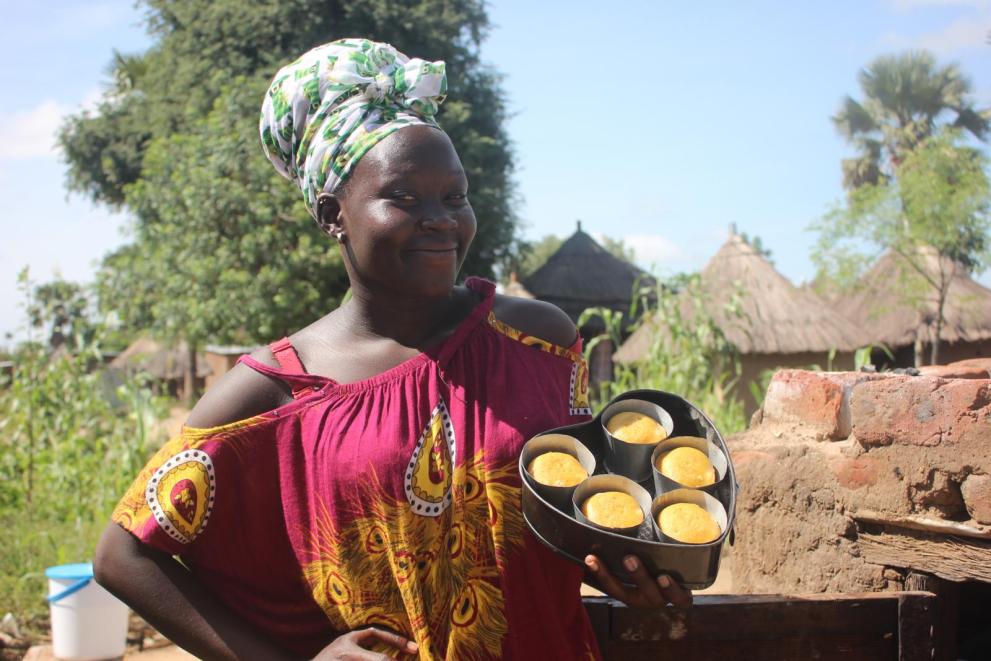
The smell of freshly baked muffins will lead you to Keguru town’s only baker. There you will be pleasantly welcomed by a serenely smiling Harriet Juru. The 26-year-old mother of three is a resident of Keguru town in Palorinya refugee settlement, and the most popular business lady.
Harriet arrived in Uganda from South Sudan in 2016. She always loved the culinary arts but had never gotten the chance to learn. The relocation to Uganda as a refugee further dimmed this hope.
She thus resorted to providing translation services for patients at the local health centre to earn an income. She translated languages like Kuku, Arabic, Madi and Lugbara to English.
Providing skills to refugees
On one of her visits to her health centre, she learned of a call for skills training in various trades. The one that appealed to her most was the bakery.
In December 2020, she enrolled at the training at Bellameling Vocational institute in Obongi District. In six days, Juru Harriet learned how to bake various pastries like muffins, cakes, cookies, buns, samosas and chapatti with modern electric-powered equipment.
However, in Obongi and West Nile at large only 38.6% of the population have access to electricity. So, it seemed unthinkable for one to pursue a business whose primary equipment requires either electricity or gas. But Harriet was not going to let this set her back. As the proverb goes, where there is a will, there is a way. She decided to build a charcoal powered clay brick oven with locally sourced materials from her compound. Building the local oven cost her 30,000 Uganda shillings (EUR 7.5). And that is how Keguru town got its first baker and bakery…
Role model for the community
Word of her success had widely spread as her pastries were proverbially selling like the hotcakes they were. This earned her the title “rich lady” which also, unfortunately, made her a target for a local gang. In February 2021, she got robbed of cash worth 500,000 Ugandan shillings (EUR 125).
This experience left her traumatized and discouraged. With counselling and guidance from GIZ and implementing partners and local security authorities, Harriet picked herself up and resumed baking. However, she intentionally scaled down on the volume to make a daily income of 50,000 shillings (EUR 12,5).
A local NGO (CEFORD) also contracted her for three months to train young ladies on baking. It boosted her confidence: she is still determined to build a big cake shop!
More on the RISE project
The EUR 20 million project is implemented by GIZ in several locations in Northern Uganda (Arua, Terego, Madi Okollo, Moyo, Obongi, Adjumani). One of its priorities is to enable greater resilience and self-reliance among both refugee and host communities by creating economic opportunities. Since 2018, the project provided new skills to 3,166 persons such as Harriet - through the organisation of various skills trainings.
Details
- Publication date
- 4 March 2022
- Region and Country
- Horn of Africa
- Uganda
- Thematic
- Greater economic and employment opportunities
- Partner
- GIZ
- CARE

